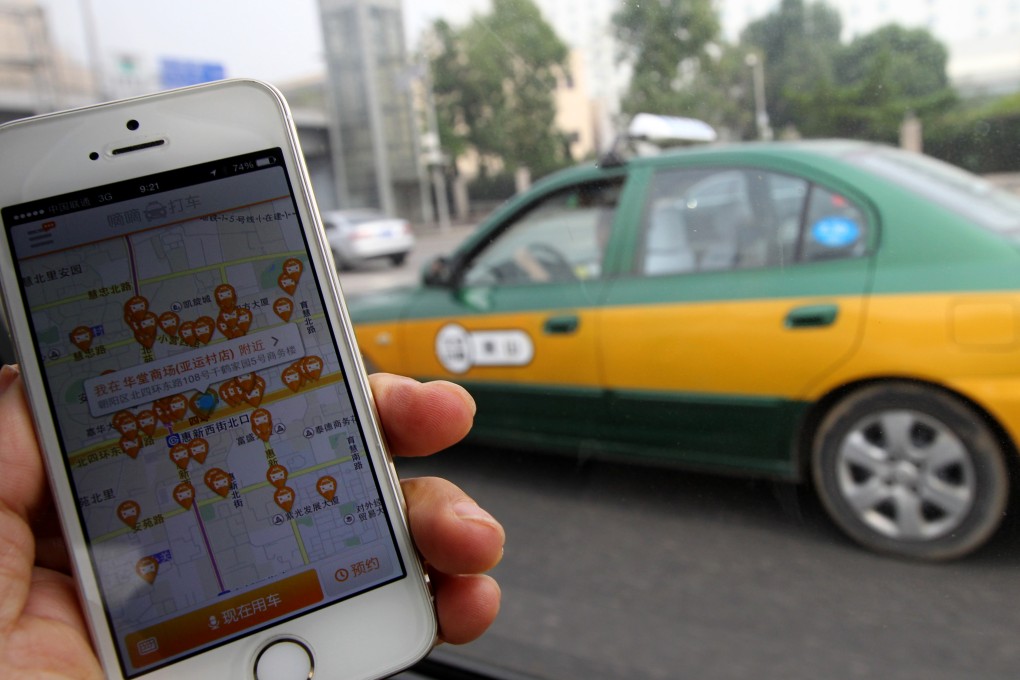Didi Kuaidi driver in Guangzhou faces record 100,000 yuan fine as Chinese authorities tighten the screws on car-hailing apps

A private car driver working for China’s top car-hailing app Didi Kuaidi in the southern province of Guangdong is facing a record fine of 100,000 yuan (US$15,735) for engaging in illegal transport activities and reaping illicit profits, he said.
It is the largest known fine levied against drivers working for such apps in the country, which has struggled all year with a backlash from established taxi industry players that have spurred government crackdowns, raids and police stings.
The man, Cui Gaohui, told the South China Moring Post on Wednesday that he was notified of the punishment by local transport authorities in the city of Guangzhou.
On June 9, undercover police stopped Cui on a road in the city’s Dongshan district, he said. He was carrying a passenger and using the company’s Didi Zhuanche private car-hailing app.